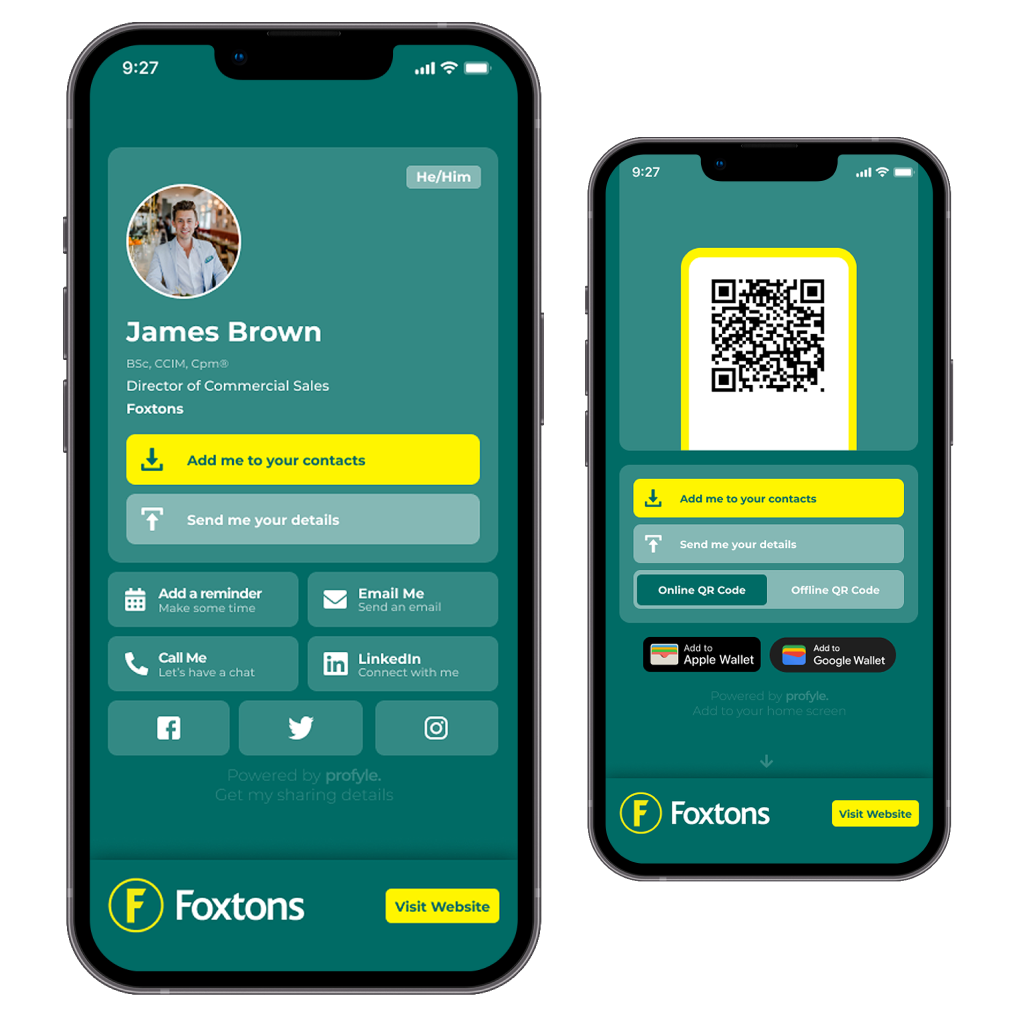
A recent study by the World Economic Forum found that 39% of workers’ core skills will change by 2030. Interpersonal skills will be especially important. That’s because “people skills” are how we interact with others. They include listening, empathy, teamwork, and communication.
Strong interpersonal skills help us work with colleagues and understand clients’ needs. Without these skills, misunderstandings can lead to conflicts and missed opportunities.

Traditional methods for building interpersonal skills, such as workshops and seminars, can help. But they often miss out on real-world practice. Profyle Digital Business Cards allow users to create a digital profile you can use in real life. You can highlight your strengths, share experiences, and connects easily with others.

A survey showed that 93% of employers think soft skills, such as interpersonal abilities, matter. Interpersonal skills help us build relationships, work together, and navigate social situations.
Active Listening: Focusing on what is being said and responding thoughtfully.
Empathy: Understanding and sharing another’s feelings.
Teamwork: Working well with others to reach common goals.
Communication: Clearly sharing information and ideas.
Conflict Resolution: Resolving disagreements constructively.
You don’t have to be born with these skills. You can grow them through practice and feedback over time. Join team activities, ask for feedback, and think about your interactions. These are great ways to improve.
It’s important to distinguish between interpersonal and intrapersonal skills.
Interpersonal Skills: Involve interactions with others, including communication, empathy, and teamwork.
Intrapersonal Skills: Relate to self-awareness and self-regulation. They help us manage our emotions and behaviours.
Both skill sets complement each other. In summary, interpersonal skills are essential for effective communication and collaboration.

There is one skill that can you help get started building relationships, resolving conflicts, and working together with others when nothing else works. When you feel you are a total outsider or an introvert or the quintessential rough-speaking type that is constantly moody. It is simply: learning to listen to others at your tempo and pace.
Active Listening: Concentrating on the speaker and responding thoughtfully.
This skill can be developed through practice and feedback. Engaging in team activities and seeking input from others are practical ways to improve it. But the key is that it has to come from yourself, your core. Listening is a skill that can never be learned from lectures but in practice.
There is another way to layout the network of related skills that all overlap one way or the other. Here are seven key types of interpersonal skills:
Communication: Clearly conveying information through verbal, non-verbal, and written means.
Teamwork: Collaborating effectively with others while being respectful and supportive.
Emotional Intelligence: Recognizing and managing your own emotions and understanding others’ feelings.
Leadership: Guiding and motivating a team toward goals through decision-making and feedback.
Conflict Management: Resolving disagreements constructively through negotiation and problem-solving.
Influencing Skills: Persuading others to understand your point of view with confidence and clarity.
Positive Thinking: Maintaining an optimistic attitude that inspires those around you.
These days, we talk a lot about influencers and influencer marketing, but we seldom develop our own influencing skills. Think about it. Perhaps, because it sounds “dirty”. But is it truly any dirtier to learn something valuable and be proactive than randomly doom-scrolling away on Instagram or on TikTok and to be influenced by others?
You can even use these skills even when working in manufacturing.

A 2019 survey by the Society for Human Resource Management found that many employers have a hard time finding graduates with the right soft skills. The truth is a bit harsh but simple. Even if you know how to communicate, you may not be able to connect with people the right way.
Real-World Examples:
Communication Skill: Delivering a clear presentation at a meeting.
Interpersonal Skill: Building rapport with colleagues for a collaborative environment.
While communication is part of interpersonal skills, the latter covers a broader range of social abilities.
Strong communication ensures tasks are understood, while interpersonal skills help execute them harmoniously. A manager must clearly state project goals to ensure good communication. They should also motivate the team and manage conflicts effectively.
Bridging the Gap with Your Profyle Card
Profyle Digital Business Cards help showcase both skill sets. Highlighting experiences, endorsements, and projects provides evidence of communication abilities. Testimonials and collaborative projects reflect interpersonal strengths.
Interpersonal skills remain uniquely human. They let us connect, empathise, and collaborate—capabilities that machines cannot replicate.
Workplace Collaboration: Teams with strong interpersonal skills communicate effectively, boosting productivity and innovation.
Customer Relations: Employees who empathise with customers build trust and loyalty.
Conflict Resolution: Skilled individuals foster a harmonious work environment.
These examples show how interpersonal skills are key to individual and organizational success.
Profyle Digital Business Cards provide a fresh way to build your interpersonal skills. Creating a digital profile allows you to:
Highlight Soft Skills: Showcase communication, teamwork, and leadership through endorsements.
Help with Networking: Easily share contact information and professional backgrounds.
Show the Latest Updates: Update profiles in real-time to reflect new experiences.
Improving interpersonal skills doesn’t require a complete personality change. Begin with manageable steps:
Set Clear Goals: Identify specific areas to improve, such as initiating conversations or active listening.
Observe and Learn: Watch how effective communicators interact and take note of their techniques.
Practice Regularly: Engage in social situations, even if they’re brief, to build confidence over time.
Remember, consistency is key. Each small interaction is a building block towards stronger interpersonal skills.
Interpersonal skills are the abilities we use to interact and communicate with others effectively. In the workplace, these skills are needed to unlock a brand new superpower: collaboration.
Team Collaboration: Working harmoniously with colleagues to achieve common goals. Did you know that the word “collaboration” comes from Latin – meaning to work with someone.
Employers highly value this skill because it contributes to a positive work environment and drives results. Employees with strong interpersonal skills are often more productive, adaptable, and better at working with clients and colleagues.
Think of your work in the context of the human history – of trade caravans crossing desserts, of the wide expanse of the Roman Empire, and so forth. The actions you do, the value that you offer is not by itself unique as thousands if not millions have done it before – perhaps even better. But it can become unique and reach near perfection, paradoxically, if you work well with others.

You need that right balance between informality and formality because of our age of casual professionalism. When listing interpersonal skills on your resume, specificity is key. Instead of vague terms like “people skills,” opt for precise descriptors such as:
Active Listening: Demonstrated by attentively engaging with team members during collaborative projects.
Conflict Resolution: Shown through mediating disputes and fostering a harmonious work environment.
Team Collaboration: Showcase shared achievements with other people or any partnerships you have been part of.
Employers appreciate concrete examples that showcase how you’ve applied these skills in real-world scenarios. For instance, “Led a cross-functional team to deliver a project ahead of schedule, highlighting strong collaboration and communication abilities.”
No one loves job interviews. But interviews provide an opportunity to show our interpersonal skills. Remember to focus on:
Non-Verbal Communication: Maintain eye contact (even via Zoom), offer a firm handshake, and exhibit open body language.
Empathy: Demonstrate understanding and consideration for others’ perspectives.
Adaptability: Showcase your ability to adjust to different situations and team dynamics.
Employers often assess these traits through behavioural questions. Prepare by reflecting on experiences where you’ve successfully utilized these skills.
Sign up for our free 45-day trial and experience the future of networking today. Embrace efficiency, embrace sustainability, embrace the future with Profyle Card.
Don’t forget to follow us on LinkedIn, Instagram and Twitter